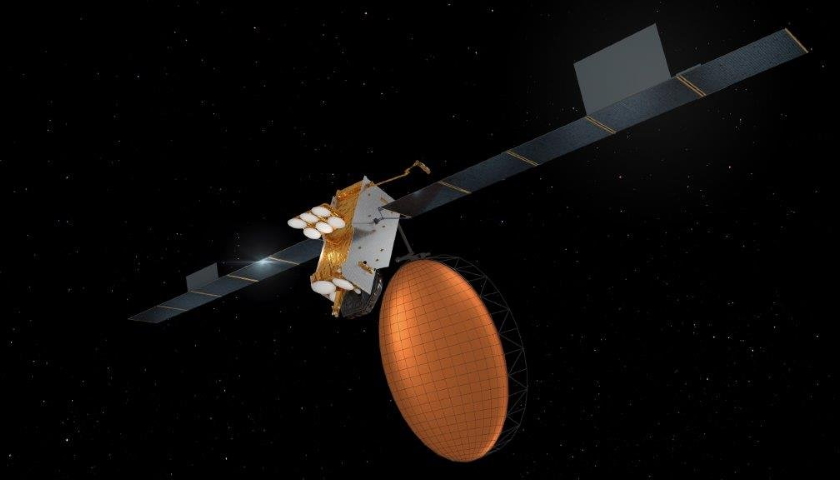US satellite firm Viasat is to acquire UK satellite operator Inmarsat.
Viasat will acquire Inmarsat for $7.3 billion; comprising of $850 million in cash, approximately 46.36 million shares of Viasat common stock valued at $3.1 billion. The transaction is expected to close in the second half of 2022.
The combined company will have a fleet of 19 satellites in service with an additional 10 spacecraft under construction and planned for launch within the next three years and will operate across the Ka-, L- and S-bands.
“Inmarsat’s dual-band global mobile network, unique L-band resources, skills and capabilities in the UK and excellent technical and operational talent worldwide, are powerful complements to Viasat’s business,” said Viasat’s executive chairman Mark Dankberg. “Together, we can advance broadband communications and create new hybrid space and terrestrial networks that drive greater performance, coverage, speed, reliability and value for customers.”
A consortium of funds advised by Apax and Warburg Pincus alongside the Canada Pension Plan Investment Board, and Ontario Teachers’ Pension Plan Board acquired Inmarsat in 2019 for $3.4bn. Bloomberg reported last week that Inmarsat’s owners were considering a sale.
“Joining with Viasat is the right combination for Inmarsat at the right time,” said Rajeev Suri, CEO of Inmarsat.
“Viasat is a terrific innovator and Inmarsat brings some powerful additions: global reach, a broad distribution channel, robust business momentum and a presence in highly attractive global mobility segments. Together, the two companies will create a new global player with the scale and scope to help shape the future of a dynamic and growing industry.”
Viasat has obtained financing commitments for $2.3 billion of new debt facilities required to complete this transaction, and Viasat said it plans to “build on Inmarsat’s presence in the UK.”
Inmarsat has been expanding its connectivity solutions portfolio, including in IoT, of late. In August the company announced the Elera satellite network service for IoT, and plans to launch two new I-6 satellites to enhance the offering. Dutch IoT firm Hiber has been announced as a customer after it abandoned plans to launch its own satellites.
In July Inmarsat announced Orchestra; a combined satellite connectivity service that brings together existing geosynchronous (GEO) satellites with new low earth orbit satellites (LEO) and terrestrial 5G into an integrated solution.
The service will combine Inmarsat’s existing GEO satellites – both GX and L-band – with a new “small constellation” of 150-175 satellites LEO satellites, while terrestrial 5G will add capacity in ‘hot spots’ such as ports, airports, and sea canals.
In September, France’s Eutelsat rejected a $3.2 billion takeover bid from billionaire Patrick Drahi. Eutelsat and Intelsat are both on the hunt for new CEOs. Intelsat’s Stephen Spengler last week announced plans to retire as the company comes close to completing a restructuring, while Eutelsat CEO Rodolphe Belmer on the same day announced his intention to step down and take over Atos.
Source: datacenterdynamics.com





